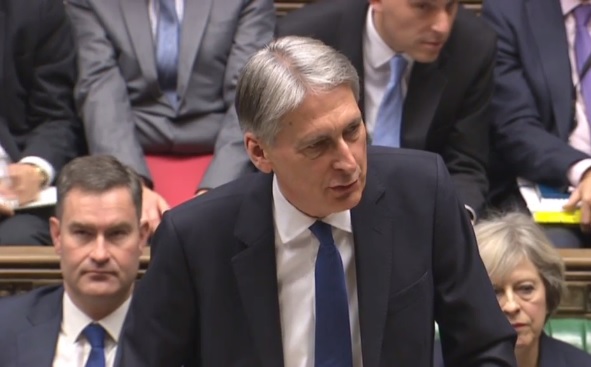Chancellor Philip Hammond has handed businesses seeking to adopt electric vehicles a new tax break as part of today’s Autumn Statement with a 100% first-year allowance (FYA) for expenditure on electric charge points.
The unexpected measure means firms that spend at least £200,000 annually on plant and machinery investment will be able to deduct the full cost of a new charge point from their profits before tax. It represents almost a fivefold increase from the normal rate of 18% on a reducing balance basis.
It will be introduced as part of the 2017 Finance Bill but has already been backdated and is open to firms as of today, expiring on 31 March 2019 for corporation tax purposes and 5 April 2019 for income tax purposes.
The Treasury has estimated that businesses will incur a negligible one-off cost for familiarisation with the new rules which are not expected to result in any additional on-going costs.
The measure is designed to support the development and installation of electric recharging equipment for electric vehicles as part of the process of promoting the wider uptake of such vehicles. It also complements the 100% FYA for cars with low carbon dioxide (CO2) emissions, and the 100% FYA for cars powered by natural gas, biogas and hydrogen.
While the investment threshold is likely to mean small businesses will be unable to take advantage of the tax break, the measure could supplement the recently announced workplace charging scheme.
This offers £300 per installation of an EV charging socket but is limited to 20 charge points for each application, making it a small scheme for large national firms.
This policy measure is the latest in a series of incentives to promote the take-up of electric vehicles and has been unveiled alongside £390 million in funding to support ultra-low emission vehicles renewable fuels, and connected and autonomous vehicles (CAV) by 2020-21.
As part of the National Productivity Investment Fund (NIPF), this includes £80 million for charging infrastructure, £150 million in support for low emission buses and taxis, £20 million for the development of alternative aviation and heavy goods vehicle fuels, and £100 million for new UK CAV testing infrastructure.
Following a long period in which central government support was only available to homeowners, these measures to boost commercial uptake of charging infrastructure have been welcomed by the EV charging sector.
Erik Fairbairn, chief executive of manufacturer POD Point, said: “The combination of this new investment, and the generous tax incentive, really is a game changer for our industry, which will essentially fuel the first wave of mass adoption of electric vehicles in the UK.
“It is exciting to see that the government now clearly recognises the central role that EV can, and will play in reducing the environmental impact from transport.”
However, the lack of new support for renewable electricity production has caused some to question the role of electric cars if clean energy is not used to power them.
Liam Kavanagh, founder and CEO of renewable energy investor Rockfire Capital, said: Increasing availability of charging for electric cars is all very good but the biggest challenge is making sure the energy used is as green as the cars. These measures are a drop in the ocean compared with what is actually required.”
James Court, head of policy & external affairs at the Renewable Energy Association, added: “We welcome the Chancellor’s new funding for electric vehicles and charge point infrastructure across the UK.
“We urge him to remember that the development of these transport technologies are not emerging on their own but are part-and-parcel of a wider shift to a higher-tech, lower-carbon world. Decarbonising transport through electrification requires the decarbonisation of the electricity system as well.






